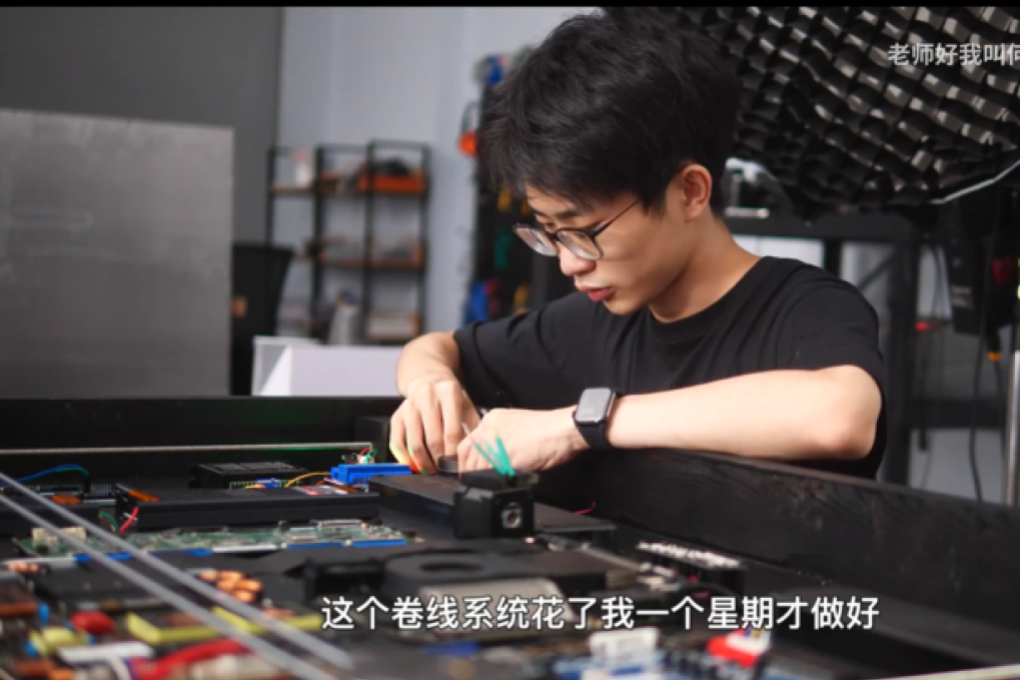Apple’s cancelled AirPower inspires this wireless charging desk invented by Chinese influencer
- In his latest video, Chinese influencer He Shijie said he has created a wireless charger that can simultaneously juice up three devices
- Shares of Loctek Ergonomic Technology, the Shenzhen-based sponsor of the video, saw its stock price shoot up

In a 7-minute video titled “I made a product that Apple gave up on”, He Shijie, a 22-year-old influencer who has more than 8 million followers on Chinese video platform Bilibili, showed off a desk designed to wirelessly charge up to three devices at once.
Users can charge a device, such as a smartphone, by placing it anywhere on the desk, He said, thanks to a charging coil that automatically moves to the device’s location based on data supplied by a camera mounted on the ceiling. Two other devices can be charged at the same time using stationary coils installed at the desk corners. He named his creation the AirDesk.
The video, released on Sunday, had been viewed more than 8 million times by Wednesday afternoon. It has also been trending as a hot topic on Chinese social media platforms including the microblogging site Weibo.
Apple did not immediately respond to a request for comment on the AirDesk.